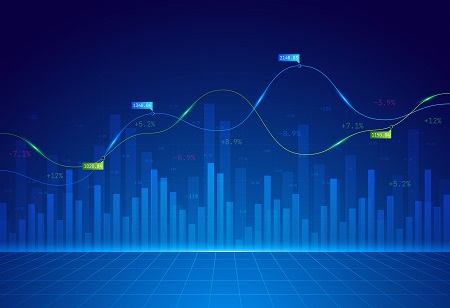
The Nikkei share average in Japan reached a three-decade high on Monday but later turned slightly lower as investors grew wary of the index's rapid increase. At the midday break, the index had dropped 0.07 percent to 33,562.41 after reaching its highest level since March 1990 earlier in the day. The Topix index dropped by 0.31 percent, reaching 2,383.67.
According to Takehiko Masuzawa, the head of trading at Phillip Securities Japan, investors started selling stocks as they grew wary of the recent rapid increases in the Nikkei. The Nikkei has surged by almost 9% this month, set to achieve its largest monthly increase since November 2020.
The Nikkei has more positive signals than negative ones due to strong corporate projections and share buybacks from the most recent earnings season, as well as U.S. factors. According to Masuzawa, it appears that interest rates have reached their highest point.
The Nikkei was primarily affected by a decline in chip-related shares, as Tokyo Electron and Advantest experienced drops of 9.29 percent and 0.55 percent, respectively. Car manufacturers experienced a decline, with Toyota Motor and Honda Motor both dropping by 2.7 percent and 2.21 percent, respectively, due to the yen's rise against the dollar.
The auto and auto parts sector saw a 2.14% decline, making it the worst performer of the Tokyo Stock Exchange's 33 industry sub-indexes. Panasonic Holdings continued its upward trend from Friday, gaining 5.3 percent after revealing plans to sell a stake in its automotive systems business to a U.S. company. Apollo Global Management is a private equity firm.
We use cookies to ensure you get the best experience on our website. Read more...